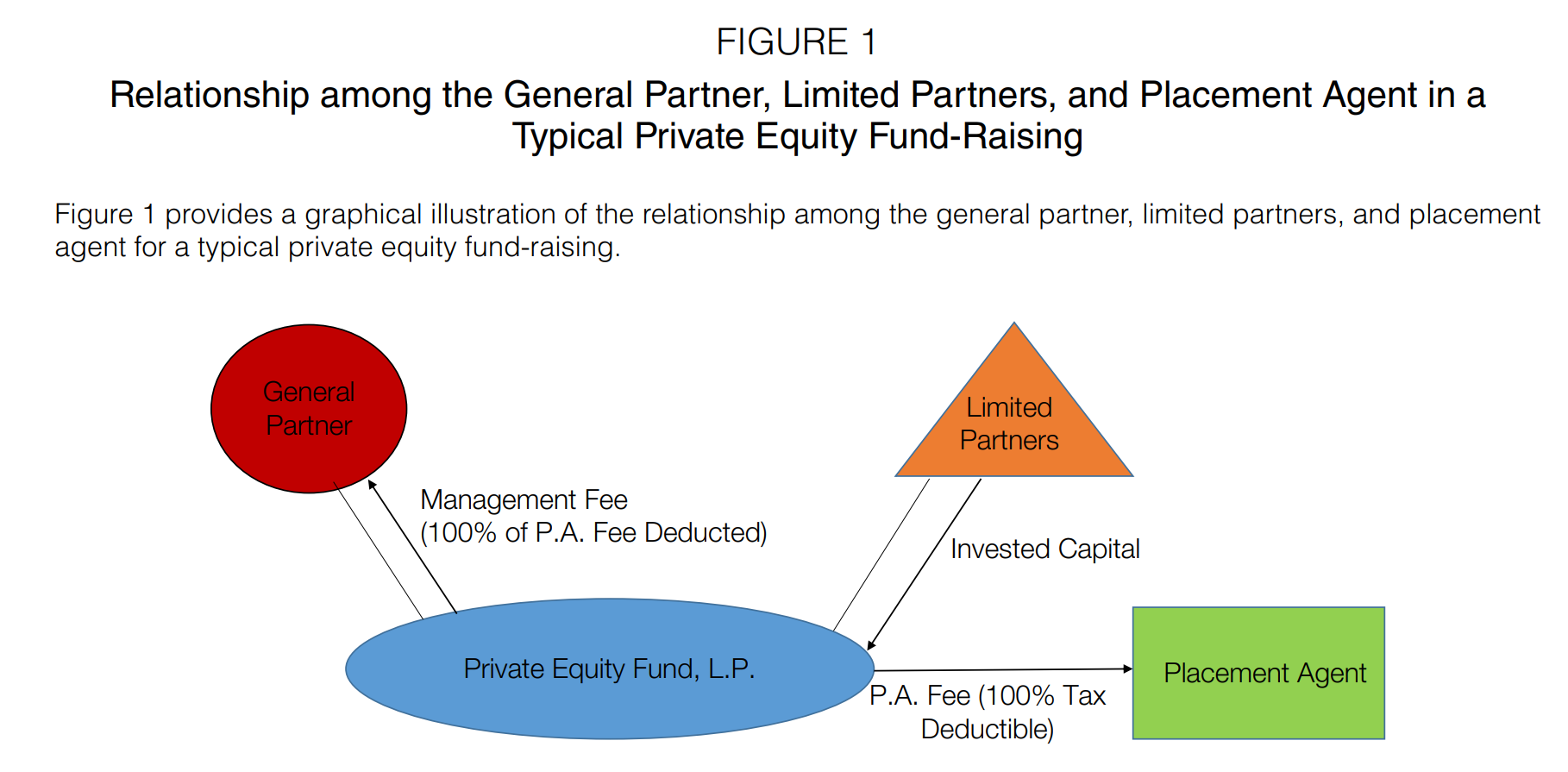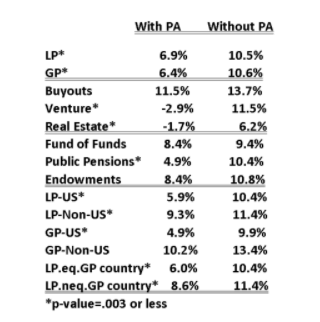The post “Placement Agents In Private Equity, Are They Any Good?” first appeared on Alpha Architect Blog.
Intermediation in Private Equity: The Role of Placement Agents
- Matthew D. Cain, Stephen B. McKeon, and Steven Davidoff Solomon
- Journal of Financial and Quantitative Analysis
- A version of this paper can be found here
- Want to read our summaries of academic finance papers? Check out our Academic Research Insight category
What are the research questions?
The authors attempt to explain the drivers of the dramatic increase in the use of placement agents in private equity that has occurred since the early 1990s. The discussion is framed around two competing hypotheses: Are agents simple influence peddlers or do they represent a value proposition to GPs in search of information and/or certification of reputation? Interestingly, this research finds support for both. Using a database of 32,526 investments in 4,335 PE funds, the authors can uniquely lay claim to results specific to a universe of entirely professional investors.
- What is the value proposition for using a placement agent (PA) in private equity?
- Under what conditions is a general partner (GP) likely to employ a placement agent?
- Does the use of placement agents result in higher returns for investors?
What are the Academic Insights?
1. Placement agents generally provide services to general partners that effectively reduce the cost of information searches and reduce the required labor as the fund-raising process moves forward. For example: (1) PAs are well able to identify sources of capital from a deep bench of institution investor contacts; (2) PAs are also a reliable source of information on the current state of market conditions as they relate to fund-raising including fee structures, distribution rights, governance issues, clawback provisions and so on; (3) they often assist in creating the ‘narrative’ for GP’s intended use of funds and in the preparation of marketing materials; (4) PAs may act as facilitators for investor meetings and communications between GPs and LPs; and (5) they provide valuable assistance with due diligence. The newer the GP, the more likely is the GP to take advantage of some or all of the services of placement agents. For those unfamiliar with the relationship structure, Figure 1 provides a graphical representation what is typical between GPs, LPs, the Fund, and PAs.

2. The decision to use a PA is driven by a myriad of reasons. primarily driven by characteristics internal to the GP, the authors document that PAs are associated with larger Funds and with Fund of Fund (FOF) structure types on the LP side. The later result is somewhat surprising as FOFs embed 3 levels of intermediation: in addition to the PA, intermediation is also practiced by the FOF and the PE fund that invests in the portfolio companies. Not exactly a value-add proposition. However, when combined with the expectation that PAs are more closely affiliated with complex fund-raisings it does seem less disconcerting. For example, the authors find that GPs domiciled in different countries than LPs are more likely to agents experienced with cross-country norms and standards. Public pensions and endowments apparently have a lower likelihood to use agents, perhaps due to the predominance of consultant advice among those organizations. The authors find PAs are used more often during periods of higher inflows to the PE asset class (see chart available via the link below), With respect to fund type, buyout funds are more likely than venture or real estate funds to use PAs. This was pronounced if the fund had a greater diversity of LP countries of origin. Same relationship if the fund is either at it’s initial offering or otherwise early in the sequence of offerings. However, the use of agents is lower among GPs with US headquarters. All in all, it appears that the evidence is consistent with two hypotheses. First, the authors present data supporting the idea that PAs perform an important role in the information sourcing and certification/due diligence portions within the fund-raising process. However, the finding that PA affiliated funds are increasingly associated with poor returns leads to a different, more troubling conclusion. The authors explain:
We document further evidence supporting investor capture and influence peddling among certain placement agents. We find that the strength of investor– agent relationships is negatively correlated with returns. In other words, the higher frequency with which an LP invests in funds affiliated with a given placement agent, the worse the returns are for that LP.
3. NO. The analysis of the relationship between fund returns and placement agents tested the difference between equally weighted IRRs for fund with PAs and those without PAs. They are sorted on fund type, investor type and geographic location of GP to LP. For all conditions, IRRs were higher for funds without agents than for funds with at least one agent. Take a look. The details are not pretty if one is a placement agent.

However, the authors also present evidence that investors in agent affiliated funds exhibit lower volatility and lower drawdowns. Perhaps PAs contribute to the tradeoff between risk and return and should be viewed with that lens.
Visit Alpha Architect Blog to read the full article:
https://alphaarchitect.com/2020/12/14/placement-agents-in-private-equity-are-they-any-good/
Disclosure: Alpha Architect
The views and opinions expressed herein are those of the author and do not necessarily reflect the views of Alpha Architect, its affiliates or its employees. Our full disclosures are available here. Definitions of common statistics used in our analysis are available here (towards the bottom).
This site provides NO information on our value ETFs or our momentum ETFs. Please refer to this site.
Disclosure: Interactive Brokers
Information posted on IBKR Campus that is provided by third-parties does NOT constitute a recommendation that you should contract for the services of that third party. Third-party participants who contribute to IBKR Campus are independent of Interactive Brokers and Interactive Brokers does not make any representations or warranties concerning the services offered, their past or future performance, or the accuracy of the information provided by the third party. Past performance is no guarantee of future results.
This material is from Alpha Architect and is being posted with its permission. The views expressed in this material are solely those of the author and/or Alpha Architect and Interactive Brokers is not endorsing or recommending any investment or trading discussed in the material. This material is not and should not be construed as an offer to buy or sell any security. It should not be construed as research or investment advice or a recommendation to buy, sell or hold any security or commodity. This material does not and is not intended to take into account the particular financial conditions, investment objectives or requirements of individual customers. Before acting on this material, you should consider whether it is suitable for your particular circumstances and, as necessary, seek professional advice.
















